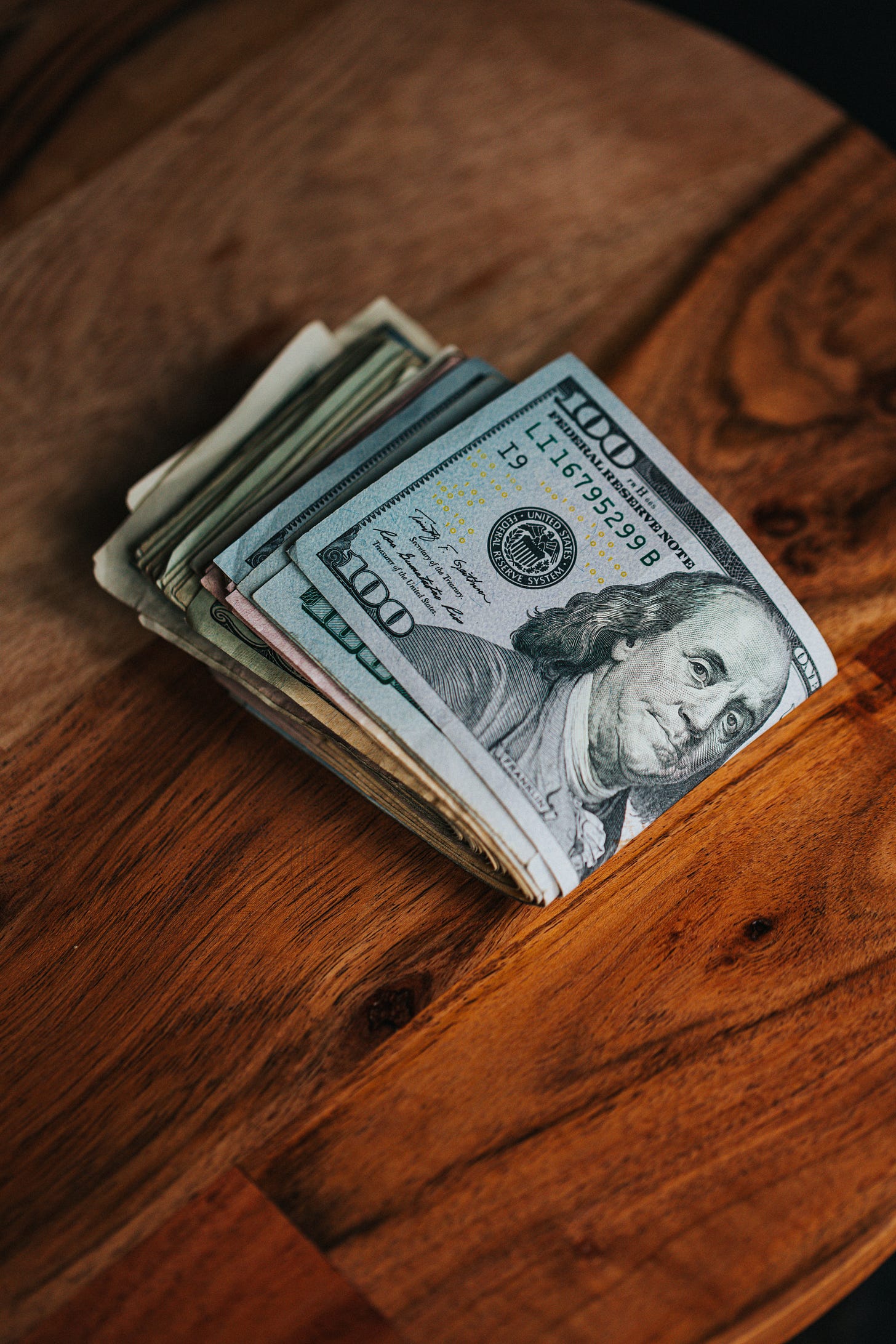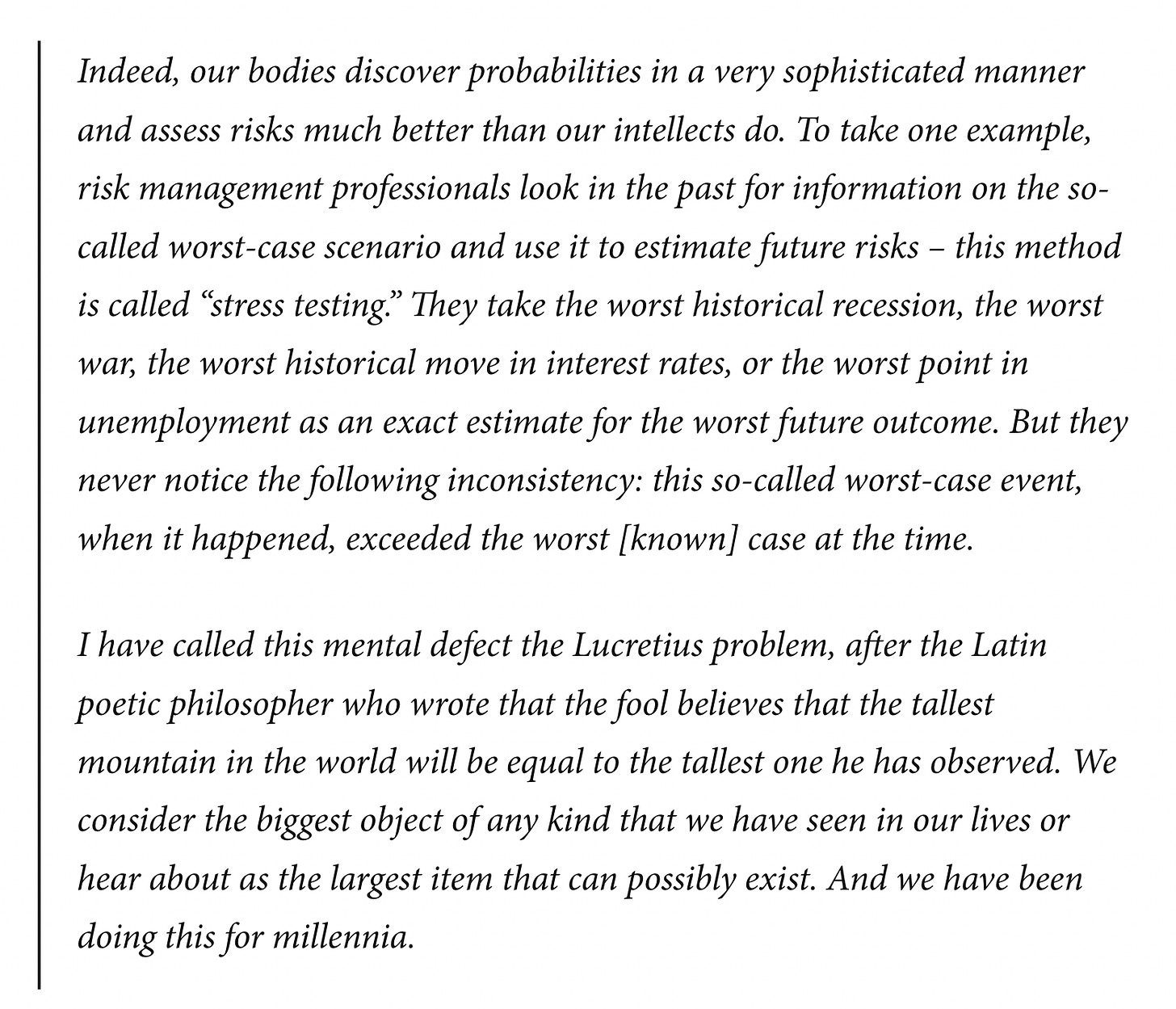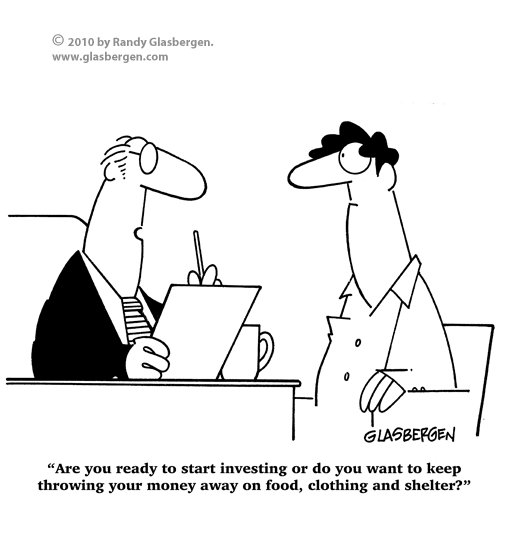
“It pays to conduct your affairs so that no matter how foolish other people get, you’re still around to play the game next day.” - Warren Buffet
Cash in the bank seems to have garnered a very lousy reputation. Every time I’ve shared with someone that 10% or more of my money is in a low-yielding savings account or a deposit of some kind, it has triggered a passionate response for deploying that cash for better returns somewhere else.
Recently, I had a friend who went on a monologue about which banks provide what returns for what maturities and was hellbent on me making a better choice with the cash in hand. This whole episode got me thinking about the utility of being liquid, instead of chasing efficiency in its deployment.
Let me provide a brief context to my personal observations regarding cash holdings.
I have known friends and family members who have flirted with risk and lost almost everything. For e.g.
A gambler friend staked everything he had on his gambling habits, counting on his lucky streak, eventually losing everything barring his house.
An entrepreneur friend betting everything on his business and running low on cash, eventually losing his business and his sanity, when the lull period hit him during COVID lockdowns.
An employee friend who aspires to be an entrepreneur but cannot leave his job due to a secured lifestyle that his job funds, along with the comforts that it throws in.
An artistic friend who envisions becoming a mega-successful creator one day, but doesn’t believe in low-hanging fruits to take advantage of in the gig economy e.g. teaching art, social media, tutoring online, etc. Eventually, he gives up on his dream as he doesn’t have cash, and takes a soul-crushing job that lets him survive.
An investor friend who concentrates his investments in a few securities and on top of it, takes leverage to double down. Eventually losing his pants when the 2000 dot come crisis blows up in his face. He never recovers from the USD 250,000 loss incurred during this time.
A client who bet heavily on his hotel project in Montenegro and ran into project delays, draining his reserves and eventually leaving him bankrupt in the face of construction issues and business headwinds.
I am sure that all of you would have similar stories from your personal lives. If you actually look at these cases and try to find one major variable that led to the ruin of these unfortunate souls, then “being illiquid” would beat all others on your list.
Being illiquid refers to being low on cash/liquid assets/ST bonds. Being illiquid refers to having all your cash stuck in long-term investments that cannot be liquidated in case of emergency/adverse situations. Being illiquid entails depending on strangers for their mercy and benevolence. Being illiquid refers to the lack of imagination for worse-case scenarios.
It reminds me of Nassim Taleb's explanation of Lucretius in his book “Antifragile” -
Time and again, I have seen overconfidence, hope, optimism, greed, or ambition play a role in destroying reputations or dreams. I do want to point out that the dynamism of capital markets, umpteen rags to riches stories, and all the empire build-ups over the years were also made possible because of these very virtues.
But what I intend to highlight is that for every single Jeff Bezos or Elon Musk story, there are 1000s of other eCommerce stories or EV stories that have been crushed in the face of competition. And that’s the reality of capitalism i.e. it's brutally competitive in the economic jungle and odds are very high that you would face headwinds, challenges, ruin, bankruptcies, losses, and stress.
A few years before John Edward Smith became the captain of the Titanic - on the maiden voyage of the Adriatic Ship - he said “I cannot imagine any condition which would cause a ship to founder. I cannot conceive of any vital disaster happening to this vessel. Modern shipbuilding as gone beyond that.” - Farnam Street Blog
Our history is littered with catastrophic losses that were faced by kings, empires, institutions, conglomerates, entrepreneurs, and artists. It just makes for a sad story and hence it won’t get much coverage in newsletters/publications unless it's very recent news e.g. Russia Ukraine, COVID lockdowns, etc.
Books with 500 pages of why an ABC company went bust don’t make for an exciting read for most, especially when it's compared to Stephen King or J.K. Rowling’s imaginative flair.
Let’s take the example of COVID itself. Nobody could have imagined the second-order consequences of a pandemic, resulting in mandatory lockdowns, which led to social distancing for months, which led to painful disruption of revenue for businesses, eventually leading to many shutting down.
Though you may say that this was unprecedented, so is the case with all surprises. Hence it's called a surprise. It just exceeds your understanding of a surprise, which was originally formed from your experiences or historical readings. Even the shocks experienced by people in the past were a surprise then for people with their own limited understanding of surprise from their experiences and reading.
And since surprises will show up in a manner one cannot fathom today, I’d like to keep 10-20 % of my net worth liquid at all times. It provides me with many benefits that cannot be economically quantified. Few of them are enlisted below -
Optionality #
Investments # There always is cash to take advantage of opportunities like the market meltdown during March 2020, or Facebook crashing 50% a few months back.
Career # Enough cash allows me to be prepared for a difficult period in case of a job loss or industry headwinds, just as I had witnessed in the Great Financial Crisis of 2008.
Decision-Making # It allows me to steer clear of “get-rich-quick” schemes or moonshots of any kind that promise very high returns in a very short period of time e.g. I had an acquaintance recently approach me for a blockchain project with 15% per month returns i.e. 180% p.a. I’m not buying it and I’m ok not getting too rich too soon.
Contribution # It allows me to help people in so many ways e.g. funding a wedding, child’s education, charitable contribution to Ukraine’s humanitarian efforts, feeding the poor at scale, helping in times of need - without feeling any kind of pinch to let go of these funds. I’m stocked up and don’t mind sharing the fortune that I’ve been blessed with, irrespective of the amount in question.
Peace of Mind #
The psychological payoff for having liquidity is huge. It makes me happy to know that I am prepared for any eventuality that may be medical/personal/financial in nature.
It gives me confidence when I go about my life. It’s like a safety net for the circus troupe that's attempting insane stunts from one rope to another. I write newsletters, run a podcast channel, and even volunteer with CFA Society India.
It keeps outside pressure away and allows me to perform my tasks to the best of my ability. I have seen many professionals disturbed due to financial stress engulfing their domestic affairs. It clearly dents their focus and productivity big time. I do not want to invite such a situation close to me.
It’s fun to be able to do stuff, and operate with grace and flexibility. Having enough liquidity helps. Not a lot as it will drag your returns from the overall portfolio. Not very little that it just doesn’t help when you need it the most. Enough is the right word, and it varies from person to person. For me, 10-20% makes the cut and I would like to credit Warren Buffet’s writings to have influenced me to think about liquidity with a fresh perspective.
“Though practically all days are relatively uneventful, tomorrow is always uncertain. And if you can’t predict what tomorrow will bring, you must be prepared for whatever it does.” - Warren Buffet
Going forward, don’t let anyone lecture you on “Cash is Trash” thinking.
“Cash is King” and always will be.
Recommendations for the week #
Josh Brown is a Wealth Advisor with Ritholtz Wealth Management LLC in the USA and is a highly respected personality in the RIA circuit. His blog posts are great to read and the one he published recently on Easter Europe Experts was a humbling one. If there was only one thing I could recommend this week, then his piece - ‘Say Less’ would be the one.
One individual can be a firestarter and this piece by Seth Godin would get you thinking about your own little ways that could make a tremendous impact on society.
If the subject of Supply Chain intrigues you, then Wall Street Journal has a documentary on Youtube that is a MUST WATCH. “Why Global Supply Chains Will Never be the same” is an in-depth understanding of what goes behind a simple 3 pin plug being shopped online and delivered to your doorstep in a few days.
Wishing you all Ramadan Kareem 🌙
Stay Safe & God Bless.






